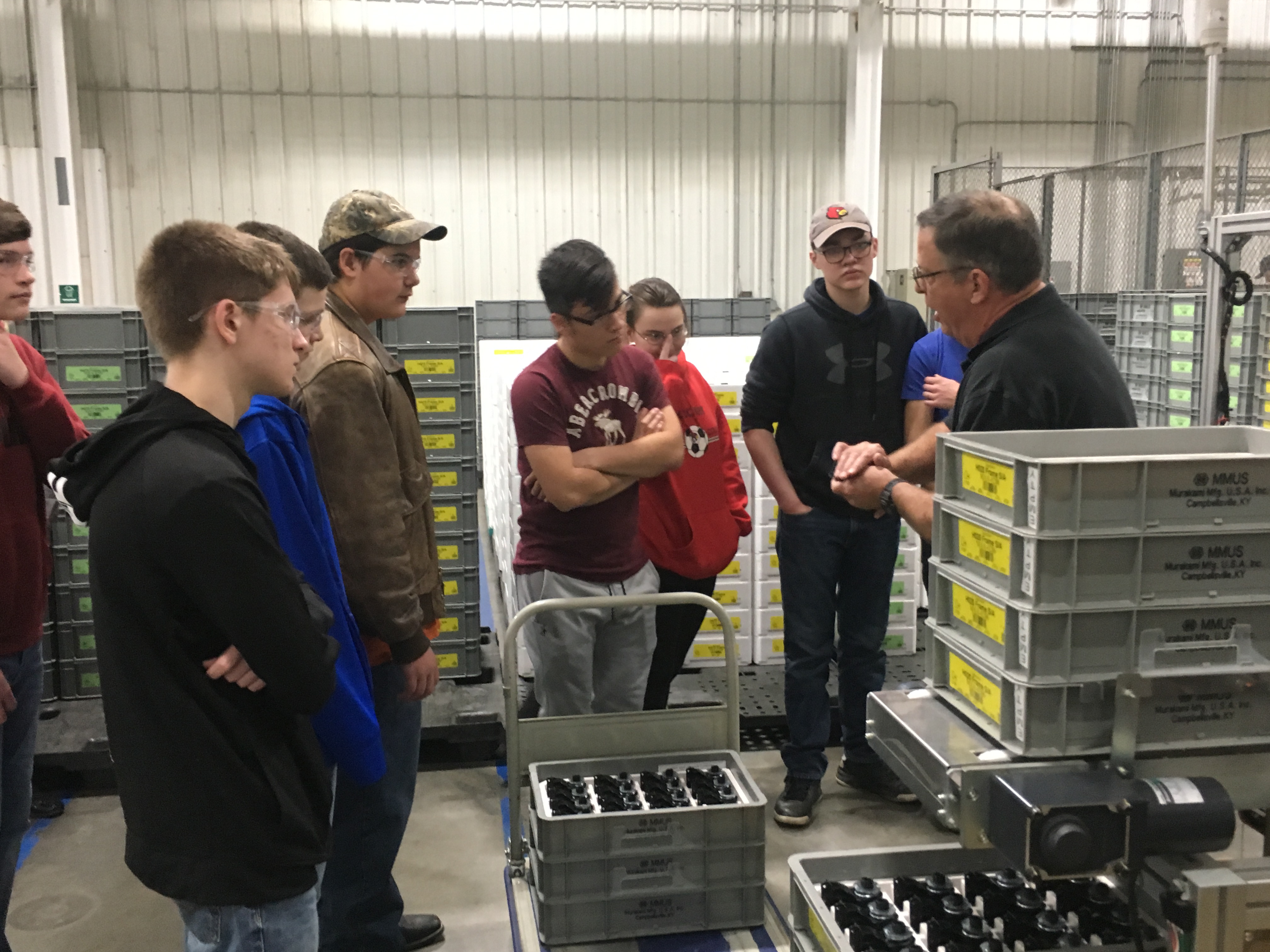

After working in manufacturing for 25-plus years, Murakami Manufacturing USA’s Chairman and CEO Michael Rodenberg has seen his fair share of workforce challenges. From changing demographics and culture shifts to evolving technology and in-demand skill requirements, companies like his must constantly adapt to shifting labor trends in order to attract and retain a quality workforce.
In addition to managing Murakami’s North American day-to-day operations, Rodenberg also serves as a member of The Kentucky Chamber’s Workforce Center Board of Directors where he has played a role in developing workforce strategies on the state level. In doing so, a striking statistic stood out to him. In 2010, Kentucky graduated 42,000 students. Seven years later, only 13,000 had completed some form of post-secondary education.
In a world focused on encouraging students to pursue a four-year degree, or more recently a two-year technical degree, Rodenberg recognized the opportunity to target a demographic that others seemed to have overlooked.
“There is still a high demand for skilled labor in today’s manufacturing arena. However, we seem to be missing the chance to identify and engage young people who may not be suited for, or even ready for some type of post-secondary education, but are perfectly capable of being productive team members within the manufacturing community,” said Rodenberg.
Seeking to seize the opportunity to further engage these potential employees, Murakami Manufacturing, a Japanese-owned automotive component supplier, launched its NextGen Program in early 2019. High school students age 18 and older may enter the company’s workforce taking a “test-drive” approach, coming onboard for at least four months to see how they like it.
During the first four months of the program, students are paid an hourly wage and work a schedule that fits after school hours. Students are taught soft skills, such as how to create a resume and conduct a job interview, as well as basic life skills such as budgeting their money and time management. If after four months the student wants to continue in the program, they will be exposed to additional personal growth opportunities.
Seven students are currently part of the inaugural roster of recruits and all have done an outstanding job.
“Our current students have shown remarkable progress in these first few months, each with no missed days or other red flags,” said Angie Miller, general manager of administrations and coordinator of the NextGen Program. “Of the seven students, six plan to continue to the next phase of their training, while one plans to enlist in the military.”
Murakami recognizes that not all participants will stay long term. Those that stay the time they’ve committed to without any absences or other disciplinary actions, but choose to take a different path going forward, will receive a bonus as a thank you for their consideration.
“If a student chooses not to continue, we hope they will have more confidence and be better prepared to pursue their next adventure,” added Miller.
To increase exposure to the NextGen Program, Murakami, in coordination with The Kentucky Chamber Workforce Center, created another strategy to reach prospective students. In April, Bus to Business was launched, an initiative to invite schools from Taylor, Adair, Green, Casey and Russell counties for a visit to the plant.
The first Bus to Business visit occurred in mid-April, with students from nearby Taylor County High School participating in a company presentation and tour. More than 25 students, along with the Assistant Superintendent and District Workforce Development Coordinator, were present to learn about employment opportunities that exist in their own community.

While Murakami Manufacturing may have spearheaded the effort, it wants to see the program expand throughout the Commonwealth. With help from local workforce, chamber and economic development partners, The Kentucky Chamber’s Workforce Center is in the process of reaching out to other employers and schools to expand the program via an informational video that was created during the initial visit.
In September, employers across the state will welcome Kentucky kids in to businesses for a closer look at career options available to them upon graduation. In addition to tours of the workplace, the day will include work-based learning experiences and on-the-job training opportunities such as internships and pre-apprenticeships.
“The more exposure these students get to these kinds of employment options, the more likely they are to choose a path that will provide long-term career opportunities,” added Rodenberg. “It’s a win-win for the student and employer.”
For more information about the Bus to Business initiative or to learn how your school or place of employment can get involved, contact The Kentucky Chamber Workforce Center. For more information about Murakami, visit www.murakami-usa.com.